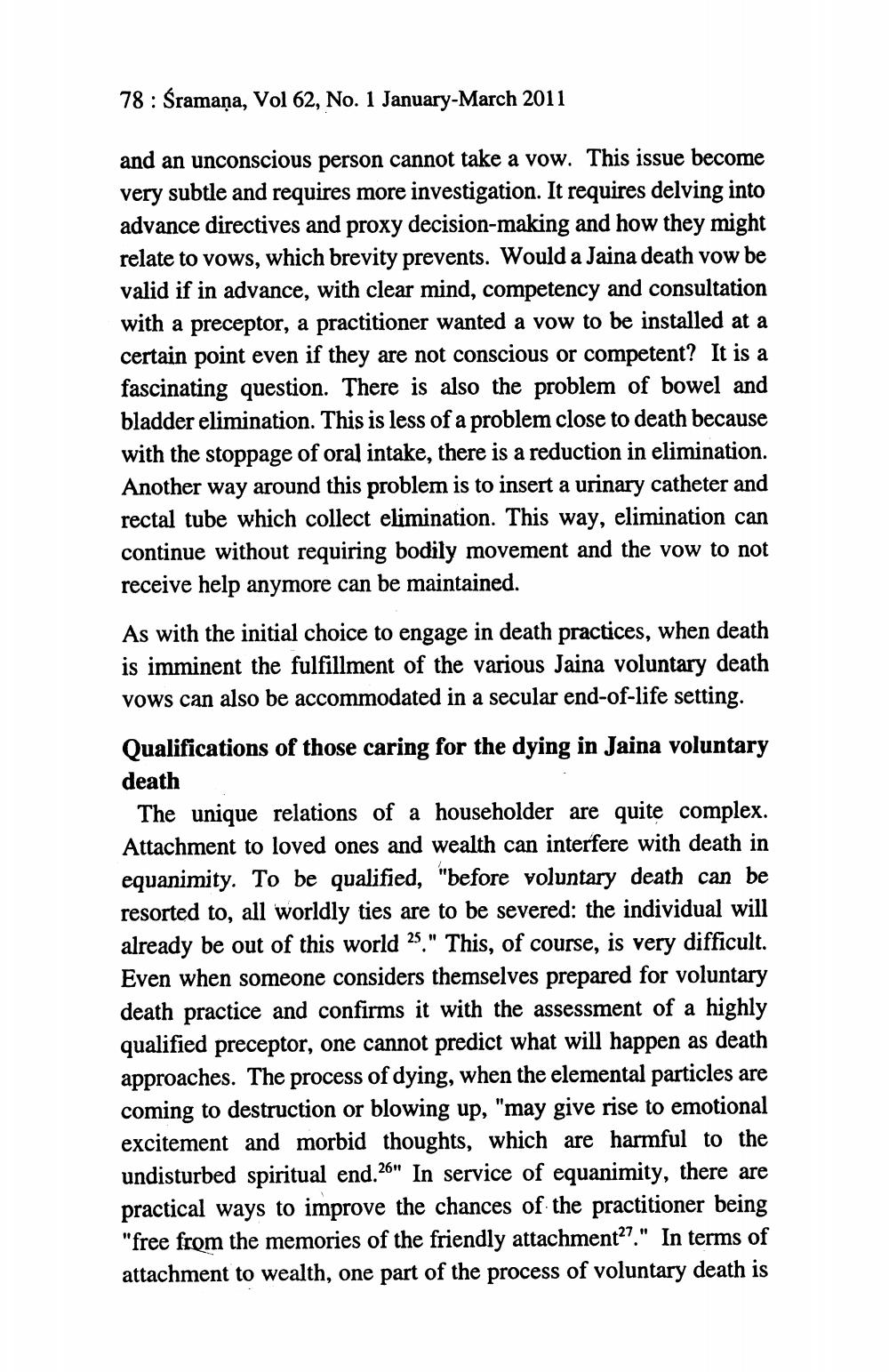________________
78 : Sramaņa, Vol 62, No. 1 January-March 2011
and an unconscious person cannot take a vow. This issue become very subtle and requires more investigation. It requires delving into advance directives and proxy decision-making and how they might relate to vows, which brevity prevents. Would a Jaina death vow be valid if in advance, with clear mind, competency and consultation with a preceptor, a practitioner wanted a vow to be installed at a certain point even if they are not conscious or competent? It is a fascinating question. There is also the problem of bowel and bladder elimination. This is less of a problem close to death because with the stoppage of oral intake, there is a reduction in elimination. Another way around this problem is to insert a urinary catheter and rectal tube which collect elimination. This way, elimination can continue without requiring bodily movement and the vow to not receive help anymore can be maintained.
As with the initial choice to engage in death practices, when death is imminent the fulfillment of the various Jaina voluntary death vows can also be accommodated in a secular end-of-life setting.
Qualifications of those caring for the dying in Jaina voluntary death
The unique relations of a householder are quite complex. Attachment to loved ones and wealth can interfere with death in equanimity. To be qualified, "before voluntary death can be resorted to, all worldly ties are to be severed: the individual will already be out of this world 25." This, of course, is very difficult. Even when someone considers themselves prepared for voluntary death practice and confirms it with the assessment of a highly qualified preceptor, one cannot predict what will happen as death approaches. The process of dying, when the elemental particles are coming to destruction or blowing up, "may give rise to emotional excitement and morbid thoughts, which are harmful to the undisturbed spiritual end.26" In service of equanimity, there are practical ways to improve the chances of the practitioner being "free from the memories of the friendly attachment27." In terms of attachment to wealth, one part of the process of voluntary death is




